
Posts Tagged ‘peace’
Beyond geopolitics, a world view
The lack of global vision, the idea of a cosmovision that overcomes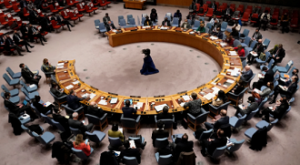 blindness has been addressed in several fields of philosophy, comes from the myth of the cave philosophy of Socrates and Plato, where here what men see without being in the light are just shadows of what is really the world, more modernly Heidegger expanded it to the “Weltanschauung” (a kind of worldview or worldview, but every translation is poor), a fundamental view because it stops seeing the world in a bipolar or unipolar way to see it as a everything that includes being, everything that exists beyond a particular way of seeing the world, including nature and the cosmos.
blindness has been addressed in several fields of philosophy, comes from the myth of the cave philosophy of Socrates and Plato, where here what men see without being in the light are just shadows of what is really the world, more modernly Heidegger expanded it to the “Weltanschauung” (a kind of worldview or worldview, but every translation is poor), a fundamental view because it stops seeing the world in a bipolar or unipolar way to see it as a everything that includes being, everything that exists beyond a particular way of seeing the world, including nature and the cosmos.
In terms of everyday life, this is fundamental both in the so-called “natural philosophy” (although it is vitiated by contemporary idealism), which includes so many fundamental values, those that already exist in international law (right to life, religious and cultural , etc.) expanding the world of mere ethics and morals to existential values, those where beyond the human condition are the rights of peoples and nations that have a certain way of being and living.
For this, a vision of the world is needed that goes beyond the limits of nationalism and the selfish desire for domination of peoples, decolonization, the limitation of the power of the superpowers and a truly effective role for the UN, which must go beyond the mere Union of Nations, in order to true unity and peace among peoples.
We quote the book The plague of Camus, when he worked clandestinely in the newspaper Combat in the fight against Nazism he wrote> “Letters to a German friend” (1945), which reads: “Letters to a German friend” (1945): there were feelings common issues such as separation or fear, but continued to put personal concerns at the forefront. Nobody had yet truly accepted the disease”, in this case not a plague, but the war, we have already posted here the relationship between them, and now we relate it to the fear that is existential.
No one else but the Ukrainian people feels this today, but Germany and the UK are already involved, the president of Ukraine has already met with Lithuania and Poland, also the Russians, USA and China and all of Europe feel it in a way, but they will say It’s not me, it’s the neighbors, that’s what Camus’ Letter warns, it’s not the neighbor, in addition to the economic sanctions that will already have an impact on the world economy, the expansion of the bipolarization of tension is already spreading little by little: the plague.
The relationship with the virus is similar, it gradually enters, one, two, dozens and then hundreds of contaminated people, until it becomes a war-cide, a general war if not in terms of war, it would be a disaster due to nuclear weapons, in existential and worldview terms, there are no limits to hate speech, a hate is a hate, a not peace.
That it is possible to see beyond conflicts, the existence and the right to life of peoples and nations, and that conflicts remain within the limit of diplomacy (in pictured UN Security Council meeting).
.
On War and Blindness
It is always blind or just egocentric that inability to look at the Other,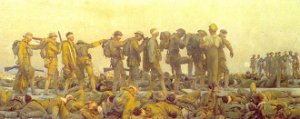 they want your attention just to demand their gifts and accomplishments, so they are egocentric, but social and cultural blindness is broader, in it lies the inability to accept different cultures and peoples, they say they do not constitute a relevant group or do not have an advanced culture, where the issue of advancement depends only on the referential, the most common in both cases is to claim the other’s gaze on themselves, without there being reciprocal.
they want your attention just to demand their gifts and accomplishments, so they are egocentric, but social and cultural blindness is broader, in it lies the inability to accept different cultures and peoples, they say they do not constitute a relevant group or do not have an advanced culture, where the issue of advancement depends only on the referential, the most common in both cases is to claim the other’s gaze on themselves, without there being reciprocal.
The essay on blindness by José Saramago, which we have already posted here, talks about this social blindness seen as a virus that spreads and begins to blind everyone, and which was turned into a film by Brazilian director Fernando Meirelles, with a screenplay by Don McKellar, and we call it our post-essay of Intermittencies of Death, another essay by Saramago.
Camus also described in his novel The Plague, about a disease that hit his native country (he was Algerian) and that saw that there comes a time when the truth seems to offend everyone, even the once sensible: “but there comes a time in the story in which anyone who dares to say that two and two make four is punished with death” because it is “an idea that may make you laugh, but the only way to fight the plague is honesty”, this forgotten and even ironic virtue nowadays.
Camus says that overcoming fear and pain “I understood that all the misfortune of men came from not having a clear language. So I decided to speak and act clearly, to put myself on the right path”, this implies not only wisdom and courage, but also overcoming human blindness.
In a more forceful passage the author will say: “Men are more good than bad, and in fact that is not the point. But they are more or less ignorant, and this is what is called virtue or vice, the most desperate vice being that of ignorance, which thinks it knows everything and then authorizes itself to kill”, but then there is hatred and war.
This seems to be a path of no return that we are walking, not just on the lit fuse in Ukraine and Russia, but in all humanity, the blindness of the time of the wars seems to have returned in full and everyone is pointing the finger at each other, and Karl Klaus warned journalists who were also riding the wave: “War, at first, is the hope that we will get along well; then there is the expectation that the other will get screwed; then, the satisfaction of seeing that the other did not do well; and finally, the surprise of seeing that everyone was screwed.
The Bible also does not lack this metaphor: the blind Bartimaeus who begs for sight, for the healing of the man born blind (incredible because he did not have a cognitive system to see) and went to wash himself in the pool of Siloam and the two blind men of Galilee, is It is clear to most theologians that this cure is to see the truth that men refuse to see: Love and Peace.
The regional and national polarizations are gradually becoming global and the feeling that the other is going to “get screwed” is the growing and pure blindness, we will all get screwed.
Possible agreements and impending conflict
Attacks that took place over the weekend in the separatist regions Donesk and Lugansk could undermine diplomatic possibilities around Ukraine, both Ukraine and Russia through the separatists want to establish territorial boundaries before a possible agreement, but tests carried out with rockets with nuclear charges in the border region are more provocative than they seem, while Russia recognizes the so-called People’s Republic of Donetsk and People’s Republic of Lugansk.
Donesk and Lugansk could undermine diplomatic possibilities around Ukraine, both Ukraine and Russia through the separatists want to establish territorial boundaries before a possible agreement, but tests carried out with rockets with nuclear charges in the border region are more provocative than they seem, while Russia recognizes the so-called People’s Republic of Donetsk and People’s Republic of Lugansk.
News agencies reported on Monday that “the president said he plans to sign the relevant decree in the near future”, referring to the recognition of the breakaway regions and informed leaders Emmanuel Macron (France) and Olaf Sholz (Germany) of his intentions. .
With this, the Minsk protocol that established a balance of forces in the three lithium regions, as Crimea was also part of that agreement, seems to be broken and Moscow’s expansionist objective is clear, now with defined objectives, Ukraine must give up part of its territory for the People’s Republics, and Crimea is not even mentioned being therefore a region already considered annexed to Russia, the doubt now is whether the Kremlin’s wishes stop there, the troops on the borders show no sign of limits.
The calculations of American intelligence analysts is that 75% of Russian military forces are dedicated to the conflict, everything suggests that it is not just about tactical support for the rebels of the republics in dispute, now what is expected is the recognition of the countries for this independence, unfortunately, is a sign for all nations and thus makes the conflict world, although the military involvement is still of the forces of NATO and Russia, besides Ukraine it is clear that it is not yet a member of NATO.
It is possible for diplomacy to act, it is always possible even on the verge of a war, what lies ahead with bombers in the Donesk and Logansk region is an internal civil war, if both NATO and Russian troops get involved in the fragile limits of pacification can quickly break apart.
Russia is not closed to diplomacy, but the announcement of a reconnaissance action is clearly a request for Ukraine to retreat, while there are military accusations from both sides.
It may seem like a local conflict, but let’s remember how the conflicts of the first and second wars were born, which were for dominance in border regions and which seemed only local problems.
It will be with strong diplomacy in this region that a worldwide escalation can be avoided.
Love enemies and avoid wars
Last week we talked about how famine, pestilence and wars were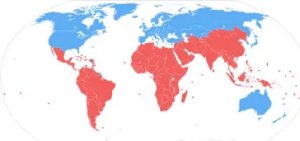 closely correlated, in yesterday’s post we showed how the “division” of Europe was in the post-war period, the first North African countries that were under France (Libya and Tunisia) and Spain (Morocco), and we discussed the wars that still take place there due to phosphate mining.
closely correlated, in yesterday’s post we showed how the “division” of Europe was in the post-war period, the first North African countries that were under France (Libya and Tunisia) and Spain (Morocco), and we discussed the wars that still take place there due to phosphate mining.
Virtually all of Africa was colonial, except for Liberia and Ethiopia, the latter, which is still the headline of famines and wars, is now joined by Somalia, which was an Italian colony, in the post-war period Russian influence in the liberation struggles increased. influence in several regions, such as Angola, Mozambique and Guinea Bissau, but practically all of Africa enters this boiling process, and the allied forces that had formed the United Nations, Japan defeated in the war had to recognize the independence of Korea (until then unified) and the concession of the Kuril Islands to the Soviet Union, but which have recently fueled tension between Russia and Japan.
So the United Nations was not able to promote independence without big and bloody wars in Africa, some still persist, decolonization is just a new way of dependence, just as in America dependence on ideological struggles, these cultural and internal, never allowed real peace and an end to the cold war.
The fall of the Berlin Wall and the dissolution of the Soviet Union, with several countries becoming independent and returning to their original culture, it is a mere illusion to think that they are buried by ideologies, it seemed to give rise to a world where political, cultural and religious diversity would be tolerated, although the Arab tension never happened, the Arab Spring was an encouragement, but the forces that are still alive within these nations are still operating vigorously, see tensions in Libya, Congo, Sahara and many others, too Latin America is experiencing a polarization sometimes to one side and sometimes to the other.
The economic and political strength that China has gained, the new geopolitical influences of Russia, the tension between the north and the poor south, the crises of the democracies all seem to accelerate a process of establishing a New World Order, some more fatalistic currents call it for the acronym NOM, but in fact all this is just the boiling of issues that the post-war period has not resolved, the United Nations is still not what it promised to be a real “concert of nations” that live in peace and negotiate conflicts.
So we live a bipolar tension in many ways, north-south (photo), colonies and colonizers, ideological tensions that act today more internally than externally, and a pandemic that accelerated this whole process, if the world could be polarized it could be unipolar, there is a positive perspective that would be the real “concert of nations” and a bad one that is the polarization in one of the perverse factors that have already acted on humanity.
How to live with such huge cultural and political differences, a principle of friendship or peace that is always threatened is not enough, it is necessary to accept and defend diversity, to overcome the concept of “enemy” in the form of hate and intolerance (we wrote several posts to explain this), what in terms of Christian culture is called “loving your enemy”, says the reading Lk 6:27-28: “I say to you who hear me: Love your enemies and do good to those who hate you, bless those who curse you, and pray for those who slander you”, in other words neither unipolar nor bipolar, but a multipolar world.
Hate and Intolerance in History
It is necessary to know the historical process to understand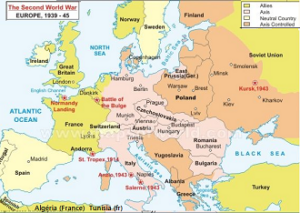 the bases on which a world polarization and an alleged new world order, a very vague term and subject to many interpretations, which led to polarization in the period of the Cold War and which seems to return with new molds, where the leaven of hate can flourish.
the bases on which a world polarization and an alleged new world order, a very vague term and subject to many interpretations, which led to polarization in the period of the Cold War and which seems to return with new molds, where the leaven of hate can flourish.
The reasons that led to the formation of the Axis, an alliance with the Nazis in World War II, were: territorial expansion with the creation of empires based on military conquests and the overthrow of the post-First World War international order, and the destruction and neutralization of Soviet communism.
Germany and Italy signed 1st. November 1936, a week after announcing a friendship pact, the creation of the Rome-Berlin Axis and then on November 25, 1936 the Anti-International Communist Pact (Comintern) in opposition to the Soviet Union, Hungary, Bulgaria and Slovakia joined the Axis in November 1940, later Croatia joined, Finland joined the USSR in 1941 and in April of that year Yugoslavia was invaded and dismembered by Axis forces and then the Soviet Union.
At the beginning of the war, in 1st. From September 1939, the allies were France, Poland and the United Kingdom, as well as the states dependent on the British Crown: India, Australia, Canada, New Zealand and South Africa, after the invasion of Belgium, in addition to the Netherlands and Greece joined the allies, the Soviet Union supported the invasion of Poland, but realizing that it would be betrayed by the Nazis, it also became an ally, the United States would fully enter the War after the attack on Pearl Harbor (7 December 1941 ), supported with money and weapons until then, in December 1941 it became an allied member with troops and sending heavy weapons to Europe.
China has had a protracted war with Japan since the Marco Polo Bridge Incident in 1937, which was an incident of the disappearance of a soldier and troops stationed on either side of this bridge that is close to Manchuria (the disputed region), so China officially joined the Allies in 1941.
With the Axis practically defeated, the Tehran Conference was held with the first territorial divisions of the occupation troops in each country, this is important to understand the Soviet advances constituting Eastern Europe, the D-Day of the disembarkation of the troops in Europe was held in December 7, 1941.
The Potsdam and Yalta conferences were held on July 17 and August 2, 1945, respectively, before the bombing of Nagasaki and Hiroshima on August 6 and 9.
Two attitudes must be analyzed in the post-war agreements, one is the reintegration of German territory to the war in the limits before the first war, with the exception that the place where the former Königsberg was after Stalingrad and today Kaliningrad was taken by the USSR and the Germans. were expelled, the negative was the nuclear bomb on Nagasaki and Hiroshima when the war was practically over, and the effects of the bomb marked the history of mankind forever, dropped in August 1945.
In the next post, we will analyze the advance and the almost end of the cold war and what can cause an imbalance and create a New World Order, an acronym used in different ways.
Tolerance, War and Peace
It grew even more in the midst of the pandemic, which forced 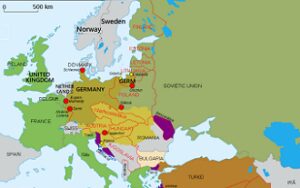 us into involuntary seclusion, a kind of intolerance to the Other, what in current philosophy has been called the exclusion of the Other, Habermas, Paul Ricoeur, Emmanuel Lévinas among others wrote about it, and more currently Byung Chul Han.
us into involuntary seclusion, a kind of intolerance to the Other, what in current philosophy has been called the exclusion of the Other, Habermas, Paul Ricoeur, Emmanuel Lévinas among others wrote about it, and more currently Byung Chul Han.
In the Enlightenment, Voltaire had already written something similar in his “Philosophical Dictionary”: “What is tolerance? It is the prerogative of humanity. We are all full of weaknesses and errors; let us mutually forgive each other our follies, such is the first law of nature.” (VOLTAIRE, 1978, p. 290)
At the time the book was banned from circulation in France such was the intolerance between Catholics and Protestants, and it was this that led Voltaire to call them maniacs.
The Illuminist affirmed that “without tolerance” the world would continue to be disordered, as he continued, and radicalizes it by saying: “the best way to reduce the number of maniacs, if there are still any, is to entrust this disease of the spirit to the regime of reason, which slow, but infallibly enlightens men” (idem), he believed this because it was characteristic of the spirit of enlightenment and religion in his time, due to the division between the Christians of the Reformation and the Catholics, were intolerant, contrary to the gospel they preached about forgiveness. and mercy.
On the religious question, John Locke changes the argument to defend religious tolerance, starting precisely from the separation between State and Church and establishing different functions for each of these institutions, as well as their own powers to carry out their due functions, but it took two wars. for the concept to mature.
The issue of religious tolerance was established in the Westphalian Peace Treaty, historic for international relations, which were actually two treaties in the German cities of Münster and Osnabrück, in 1648, putting an end to the so-called Thirty Years’ War (1618-1648) in which religious disputes led to inter-kingdom struggles.
The Declaration of Principles on Tolerance was adopted on November 16, 1995 by UNESCO Member States, it states that tolerance is neither indulgence nor indifference and suggests “respect and appreciation for the rich variety of cultures of the world”. world and forms of expression”, taking a different look at different cultures and religions.
Voltaire’s maniacs can now be translated as fanatics, defenders of territories and power, motivations of the first and second world wars, where the territories led to tensions between the Triple Entente (also known as Allies: France, United Kingdom and Russia) and the Triple Alliance (which were the Central Powers: Germany, Italy and the Austro-Hungarian Empire), the reduced territories of Germany and the expanded territories of Russia and France, the region of Alsace-Lorraine will be disputed by Germany) will fuel the future second world war , and these poorly made treaties will lead to new territorial disputes, see the case of Finland (which was established as neutral towards Russia) as the case cited in Putin’s recent conversation with Macron about the current Ukraine crisis, which could be a kind of “Finnish solution”, in the last hours there was a small withdrawal of troops from Russia in frontiers.
Any treaty now needs to have secure foundations, the idea that a “new world order” is underway hides expansionist desires and political intolerance.
References:
VOLTAIRE. (1978) Dicionário Filosófico. 2 ed. Trad. Marilena Chauí. São Paulo: Abril Cultural, (Collection: Os Pensadores, Thinkers).
LOCKE, J. (2019) Carta sobre a Tolerância (Edição bilíngue Latim-Português) Tradução Fábio Fortes e Wellington Ferreira Lima. Organização, introdução, notas e comentários Flavio Fontenelle Loque Belo Horizonte: Autêntica Editora.
Happy are the peacemakers
The cycle of plague, famine and war in whatever order it has taken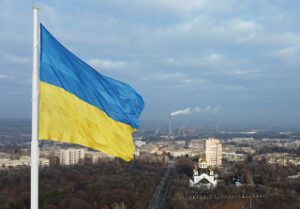 place in history is fed back because the forces that promote peace succumb and among them are also the true spiritual forces that desire the progress of the human soul, which is inseparable from the substantiality of life. , not only human, but of the entire planet.
place in history is fed back because the forces that promote peace succumb and among them are also the true spiritual forces that desire the progress of the human soul, which is inseparable from the substantiality of life. , not only human, but of the entire planet.
The 20th century, in addition to the second world war, everyone who lived through it narrates the horror of this period and the deprivations they went through, especially the poorest, was also marked by authoritarian regimes and Franco, Salazar and De Gaule in Europe, the liberation struggles colonial times, and the civil war in Spain, all wrapped up in atrocities and many deaths.
With the end of the pandemic imminent, but it should be noted that it is still advancing in the southern hemisphere, a cycle of social deprivation approaching a war would be the least desirable and there are no diplomatic forces that can avoid it, what would be the consequences of an insanity of this type is for all analysts, unpredictable in proportion and extent.
There are forces that fight for peace in the underground of societies, today’s pronouncement (02/11) by Pope Francis is one of these forces, but even within religions and spiritualities (we have already discussed the true asceticism) there are those who sadistically (because have not lived and read testimonies of the war) are not bothered by this danger.
The pope said forcefully: “war is madness”, and asks for dialogue, several diplomatic attempts have been made but the paths of any bilateral agreement seem to be closed, in a way because the parties do not seem willing to give in on problematic points. (the presence of NATO and Russia itself in Ukraine, for example), the pope also asked that this dialogue be “serious” and that each side really be willing to listen and give in to a possible agreement.
As the hours go by, the attempts seem to be running out, the common citizens of both countries, the poor and the vulnerable, most would never approve of a war, there is hope and faith that they will be minimally spared if the absurdity happens.
On the eve of a football club world, where the dispute ends with the end of a match and in the midst of the Winter Olympics, despite all rivalries, in this case the desirable thing is that in addition to the opposing sides, everything is consummated from a certain end point, and in this case the supporters of two or more teams, is more humane than the insane dispute for territories and warlike advantages of a war with unpredictable consequences.
The biblical liturgy says, in the passage in which Jesus meets his disciples and a crowd on a plain (all on the same plane) of Tire and Sidon (Lk 6:20=21): “Blessed are you who are poor, for yours is the God’s kingdom! Blessed are you who are hungry now, for you will be filled! Blessed are you who weep now, for you will laugh!” and explains that the rich and powerful once had the solace in this world and the false prophets who are applauded, because they did not have the courage to tell the truth.
Let us hope that a remnant of serenity, tolerance and balance remain in the great world war forces and the war is avoidable.
Little history of Ukraine
In the 3rd century the region was inhabited by the Goths (250-375),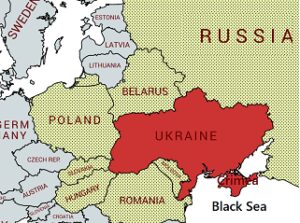 the region was called Aujo, there was a Cherniacove culture there, the Ostrogoths settled in 350 with the influence of the Huns, to the north there was a people who had a Kievan culture (then later Kyiv or Київ).
the region was called Aujo, there was a Cherniacove culture there, the Ostrogoths settled in 350 with the influence of the Huns, to the north there was a people who had a Kievan culture (then later Kyiv or Київ).
The origin of today’s Ukraine is in Slavic tribes that arrived in this territory in the 5th and 6th centuries, in the 9th century Viking invaders arrived, called Varigi, the Mongols invade in the 13th, King Igor I with a young Varigi teenager named Olga united the peoples, this kingdom called Rus had Kiev as its capital, the king will be killed and Olga takes power with great vigor and courage, and dominates the peoples, Olga will occupy a special role and then convert to Christianity with great work in favor of the poor .
Olga is a separate chapter, after being a strong queen and to a certain extent cruel to her enemies, her son takes over the kingdom and she converts to Christianity, built churches, carried out evangelization campaigns, but was unable, however, to convert her son. Sviatoslav (Svyatoslav I), helped the poor and sick people so much that he became a saint recognized by the Orthodox Church in the year and by the Catholic Church of the Byzantine Rite, his son did not convert, but his grandson Vladimir I converted and also was declared a saint.
The Variagi commanded several strategic points in Russia and explored transport and trade, so during the 10th and 11th century, the territory of Ukraine became the center of a powerful and prestigious state in Europe, called at the time Kiev Russia (recall was the kingdom of Rus) and were also the basis for many subsequent Slavic nations (such as Greater Bulgaria and Belarus, for example), in addition to the Russians themselves who were then just scattered Slavic tribes.
The state was conquered by Casimirio IV of Poland, while the heart of ancient Kievan Russia passed to the control of the Grand Duchy of Lithuania, but the marriage of Grand Duke Jagellan of Lithuania to Queen Hedwig of Poland, changed control of the sovereigns. Lithuanians to most of the Ukrainian territory and thus returned to Ukraine.
We take a leap into history, which is also rich in the medieval period, a civil war that lasted 4 years after the Russian revolution (1917) in 1921 Ukraine becomes a Soviet socialist republic, with purges and land grabs that Ukrainian farmers refused to deliver, Ukraine is a major grain producer.
The Stalinist period and the Nazi occupation of its territory, which caused more than 10 million deaths between 1930 and 1945, Ukraine resisted Russian collectivization and Nazi invasion, Ukraine in the Soviet period was responsible for ¼ of Soviet production in the agricultural sector producing 40 million cereals, a record for the time.
Finally, the problem of the Crimean territory, which has its origins in the war of 1853 and 1856 where there was a conflict between Russia and an alliance formed by France-United Kingdom-Kingdom of Sardinia (today part of Italy), in 2014 the war is reborn with the takeover by Russia, it should be clarified that there was a contract between Ukraine and Russia in a kind of leasing for the concession of the Balkan port where Russia’s largest maritime fleet is located, in Sevastopol, which was thus an independent territory of Ukraine.
Thus, among the most absurd analyzes is the one that says that Ukraine would be unviable as an independent state, it is weakened by an internal war and under Russian pressure.
An appeal for peace
Tensions on the borders between Russia and Ukraine are growing, after stationing more than 100,000 men in the northern region of Russia, to the north, while a good region of Ukraine continues with conflicts in the cities of Luhansk and Donesk, where the rebels pro-Russians still control part of the territory and it is a region where more than 50% of the population speaks Russian as their native language.
after stationing more than 100,000 men in the northern region of Russia, to the north, while a good region of Ukraine continues with conflicts in the cities of Luhansk and Donesk, where the rebels pro-Russians still control part of the territory and it is a region where more than 50% of the population speaks Russian as their native language.
The crisis already reached its peak in 2014, when Ukrainians deposed pro-Russian President Viktor Yanukovych, in demonstrations that became known as EuroMaidan because most Ukrainians supported joining the Eurozone and the president did not, after several battles, some bloody with armed struggles, the president was deposed and Petro Poroshenko was elected, who promised to fight corruption and pacify the country, and in 2019 the screenwriter and actor Volodymyr Zelensky was elected, Ukraine is semi-presidential, so the prime minister effectively governs, currently is Denys Shmygal.
Elections will take place next year and the president occupies the third position, so Russia knows the internal fragility, while making Ukraine a NATO country means the defeat of pro-Russian forces operating in the Luhansk and Donesk region.
The talks that are taking place today with the presence of France, Germany and Ukraine with Russia will have as their main agenda the issue of the internal conflict in northern Ukraine, since the United States and the United Kingdom follow a line of confrontation with Putin and not rule out economic punishments, and in case of invasion retaliation, both countries have already sent troops and armaments in support of Ukraine, as have Lithuania, Estonia and Latvia, while Belarus (which borders Ukraine) received fighter jets and weapons.
Russia has carried out war exercises in the Black Sea and is expected to do joint training with Belarus next month, as negotiations ramp up Putin while increasing pressure with military forces at the borders, repeating that he does not intend to invade Ukraine but the The list of demands it makes is huge, the main one being that Ukraine not join NATO, but it doesn’t give in to anything.
China’s position is discreet so far, just remember that China is Ukraine’s biggest trading partner and a major buyer of grain and meat.
However, the current crisis is already compared to the missile crisis in Cuba in the 60’s, more precisely in 1962 when the world was close to a world war.
As of today (26/01) Ukraine government websites have suffered a strong hacker attack and few government systems are down, in response a cyberattack on Belarusian railways brought trains to a standstill.

